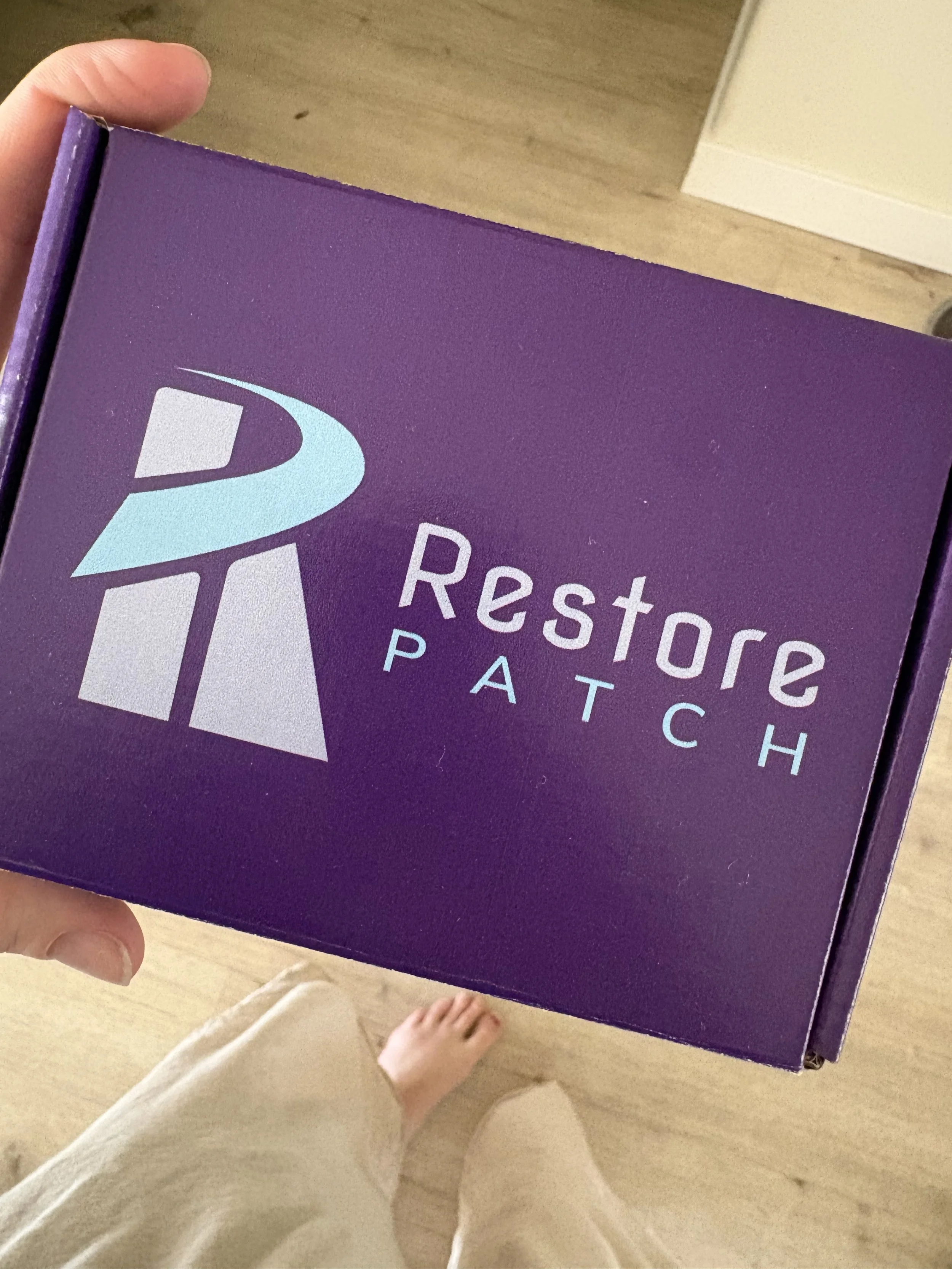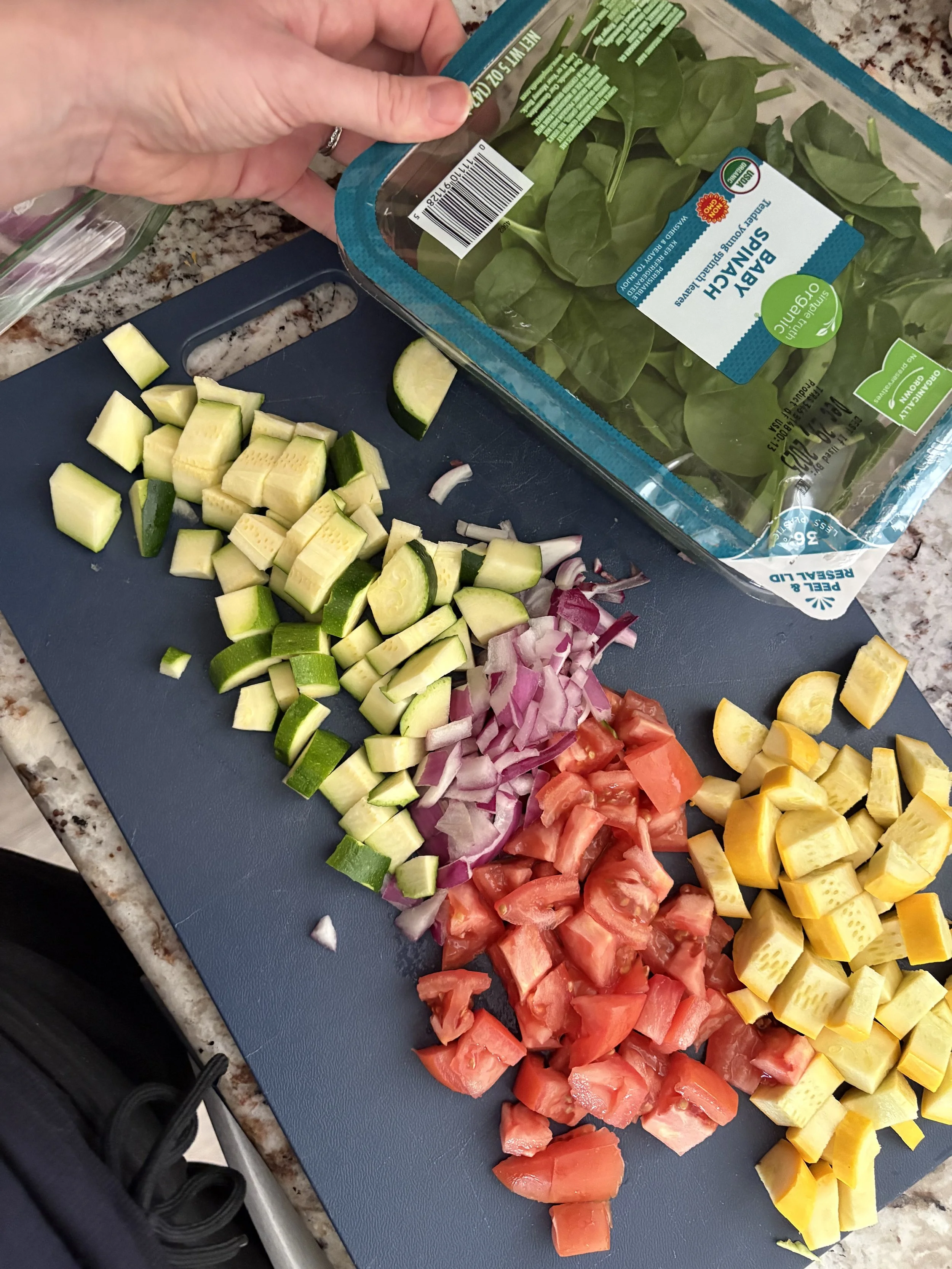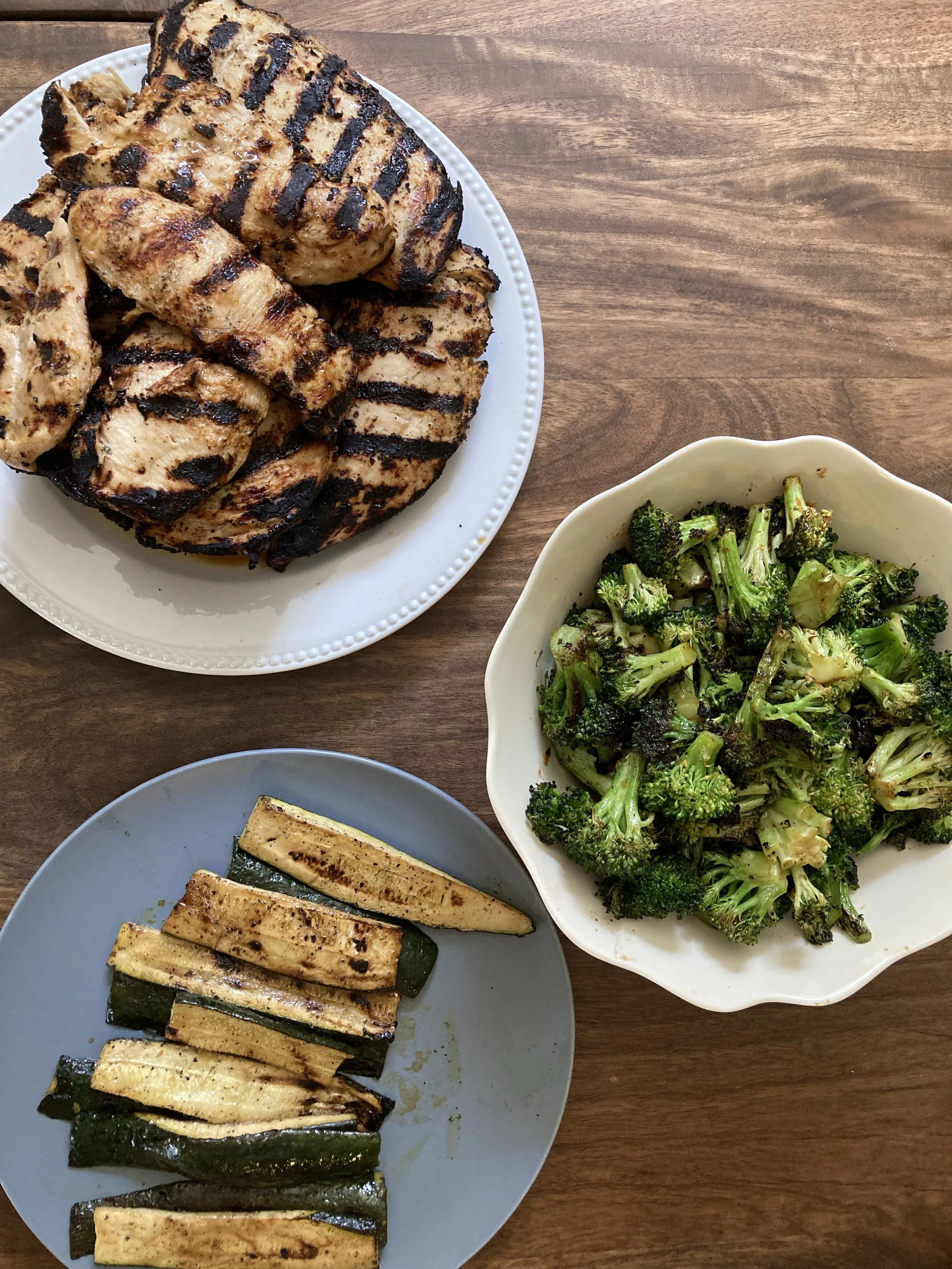Is Organic Actually Healthier?
Is organic really that much better?
Here is the tool I use for deciding what to purchase organic, and what i’m okay with buying conventionally grown.
(if you want the digital download cheat sheet yourself, check out the link at the end of the post ☺️)
Who else has been overwhelmed when they go grocery shopping and look at the price difference between conventional and organic foods? Well, what if I told you that not everything has to be organic to make the most impact in your families diet?
And before I get further into this- I believe any fruits and vegetables that you include in your diet (whether organic or conventionally grown) are better for your health than high-processed, fortified, and refined foods.
So if organic foods are out of your budget, don’t feel bad or give up on produce completely. Living a healthy lifestyle and prioritizing high-quality food can be expensive, but my hopes for this post is that it can give you some useful options on ways to save money while still incorporating nourishing foods into your diet.
The problem with pesticides…
So, we’re told that “organic” is better. but why? What is wrong with the pesticides being used in conventional farming?
More and more studies are emerging about the prevalence of health concerns associated with acute and chronic exposure to pesticides.
This study talks about the increased risk of autism spectrum disorder and developmental delays in children of mothers that lived near to agricultural pesticides during pregnancy.
This abstract reviewed 17 studies, 15 of which reported “significant associations between exposure to pesticides and semen quality”.
This Harvard University study suggested that exposure to pesticide residue may limit the cardiovascular benefits of fruits and vegetables.
This study discusses the association between pesticide exposure and poor sleep quality.
I have often heard people say that “the amount is so small” when talking about pesticides or other agricultural chemicals.
But think of the cumulative effect-
“a small amount” of pesticides on your fruit, and vegetables, and “a small amount” of endocrine disruptors in your shampoo, and makeup, and sunscreen, and “a small amount” of flouride in your water and toothpaste, and “a small amount” of preservatives, additives, and fillers in your snacks….
Our bodies are overwhelmed with toxins and our body cannot keep up with detoxing it all.
What does organic mean?
According to the USDA website (the organization that governs the term “organic” and certifies accordingly) these are the following qualifications that must be met in order for a something to be “certified organic”:
-no prohibited substances (most synthetic fertilizers and pesticides) used on the soil for the past 3 years
-no irradiation, sewage sludge, or genetic engineering
-they must use measures to protect against GMO contamination
-no use of antibiotics or hormones
-free of any artificial food additives (sweeteners, preservatives, coloring, flavoring, msg, etc.)
So, what is the dirty dozen and clean 15?
Every year the Environmental Working Group (EWG) comes out with a report of the year’s “cleanest” and “dirtiest” produce, “to educate the public about fruits and vegetables with the highest and lowest pesticide residues so consumers can make the best decisions for their families”.
That means they rank all of the produce in order of the amount of pesticide residue found on the sample.
You can read the full report here.
Clean 15
These are the 15 “cleanest” produce items- or those that had the lowest traces of pesticides present during testing. These are items that I am comfortable with my family consuming non-organic, if there is a significant savings or if an organic option is not available. I make sure that everything has been cleaned well before we eat or cook with them.
avocado
sweet corn
pineapple
onion
papaya
sweet peas (frozen)
asparagus
kiwi
honeydew melon
cabbage
mushroom
cantaloupe
mangos
watermelon
sweet potato
Dirty Dozen
And thiiiis is the list of produce that I try to always buy organic because they have the highest amounts of pesticide residue. If they don’t have an organic option of these items fresh, I will also check for an organic frozen version.
strawberry
spinach
kale, collard, and mustard greens
nectarines
apples
grapes
bell and hot peppers
cherries
peaches
pears
celery
tomatos
These are lists that I frequently reference while I am grocery shopping because it helps me to prioritize what I should pay more for to be organic. So, I created a visual aid to keep saved on my phone for quick and easy reference!
I’d love to hear from you- what are some of your favorite ways to save money while shopping healthy? (If you’re interested in more ways to save money, while staying healthy, check out my Holistic Health on a Budget Guide!)
-Kaelyn















What is self-care actually?? This post explores what actually supports our wellness.. and all ideas shared take 5 minutes or less 👏